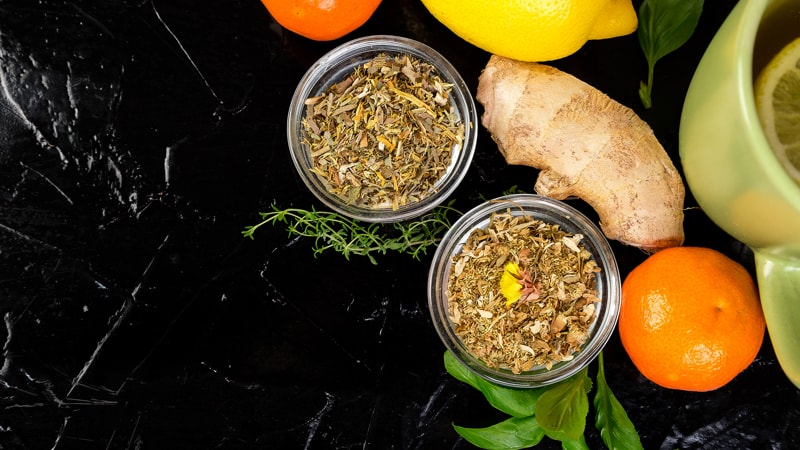We Can Add Comfort! to Our Lives!
By Dr. Brazos Minshew

As a naturopathic doctor and nutraceuticals product developer, I have enjoyed the great privilege of helping bring to market several high-profile health and wellness products that together have gone on to achieve nearly $2 billion dollars in sales. Over the recent years, I developed a growing (no pun intended) interest in the study of plants – and the role they have played throughout the centuries as effective pain relief remedies.
As you know, cannabis has burgeoned as a medicinal form used to combat pain. However, there are those of us (myself included) who are reluctant to embrace medical marijuana. The question I have pondered – which has resulted in years-long research – is: could there be cannabis-like medicinal effectiveness – without the cannabis?
Throughout the centuries, plants have been used to treat pain. For example, white willow bark led to the discovery of aspirin and poppies led to the discovery of morphine. My focus on plants and pain ultimately led to the creation of Comfort! (www.comfortbyvergence.com) a breakthrough nutraceutical combining traditional non-cannabis plant-based remedies to safely and effectively address occasional pain.
Discomfort tends to affect us increasingly as we age. Poor sleep can amplify pain, causing you to hurt more and sleep even less. Carrying around more weight than we should – and even suffering from seasonal allergies – can be contributing factors in increasing our sensitivity to pain. Comfort! blends cannabinoids from non-cannabis plants to deliver a 100% natural, non-addictive, fast acting and long-lasting pain relief solution aimed squarely at those suffering from real discomfort – no matter the source of the pain.
As science followed the activity of the cannabis plant inside the human body, they discovered that a whole new system – the Endocannabinoid System (ECS) – is the coordinator of the body and brain. It’s like discovering the “Conductor” of an amazing and complex orchestra playing an amazing and complex symphony in perfect harmony. The ECS has two main receptors. The first, CB-1, is possibly the most abundant receptor in our brain – our ‘thinking’ organ. And CB-1 is also present in our heart, gut and bones – our so-called ‘non-thinking’ organs. The second ECS receptor, CB-2 is abundant in our immune system, and in our muscles, skin and nerves. It is the predominant ECS receptor in our bones, gut and heart. CB-2 is also present in our brain. So, the harmony of the endocannabinoid system shows us that there is perfect collaboration between mind and body; the ECS seamlessly coordinates our so-called thinking and non-thinking organs and systems.
The discovery of the ECS and the way cannabis reduces occasional pain opened our horizon to discover many other plants that behave like cannabis. For example, ginger, turmeric, red pepper and frankincense all activate the ECS and reduce occasional pain in their own, unique way. Hops, the secret ingredient in beer, relaxes muscles and improves sleep. Then there’s chocolate, which improves our mood by activation of the ECS while also supports healthy blood pressure and a healthy cardiovascular system.
Therefore, even though cannabinoids were first discovered in cannabis plant species, cannabinoids that activate the ECS system are found in many non-cannabis plants:
- Turmeric phytocannabinoids and terpenes support a healthy inflammatory response without the side effects of cannabis. Curcumin from turmeric powerfully activates cannabis receptors for relief of occasional pain.
- Ginger phytocannabinoids and terpenes support a healthy COX-2 inflammatory response, balance leukotrienes and quiets certain genes associated with pain.
- Kaemfera galangal phytocannabinoids and terpenes inhibit pain from multiple pathways, including histamine-induced, serotonin-induced and bradykinin-induced pain models.
- Frankincense phytocannabinoids and terpenes strongly inhibit occasional pain that arises from the nervous system itself (neuropathic pain). This is important because, over time, the brain pathways related to occasional pain tend to experience pain even when nothing is wrong.
- Red Pepper phytocannabinoids and terpenes harmonize and amplify the cannabinoids of other plants. Further, pain is often worsened by obesity and obesity, in turn, may produce sensitivity to pain. Red Pepper reduces the pain process that is directly associated with obesity.

Plants have taught us much about our own body. Comfort! uniquely blends cannabinoids from non-cannabis plants – such as Ginger, Red Pepper, and Turmeric – to reduce occasional pain by interacting with cannabis receptors in the brain without any cannabis side effects. The result is a breakthrough option in pain relief and management – yet at the same time, it’s an option that’s very old.
I invite you to welcome Comfort! into your life.